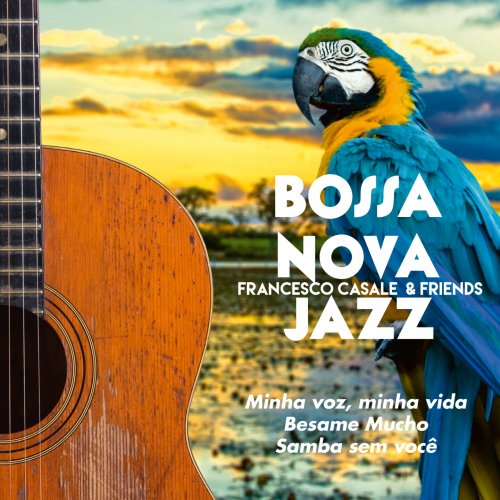Mark de Clive-Lowe - Heritage II (2019)
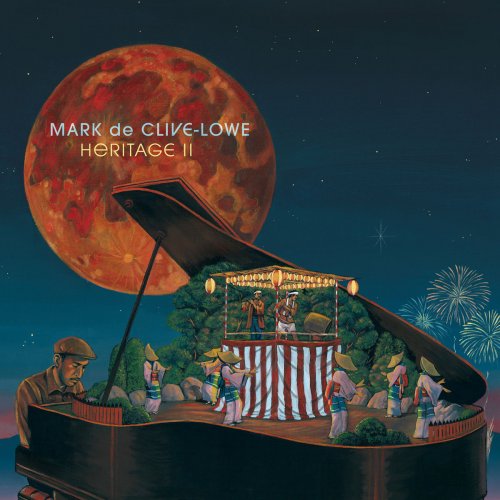
Artist: Mark de Clive-Lowe
Title: Heritage II
Year Of Release: 2019
Label: Ropeadope
Genre: Jazz, Nu-Jazz, Broken Beat, Acid Jazz
Quality: FLAC (tracks)
Total Time: 38:41 min
Total Size: 239 MB
WebSite: Album Preview
Tracklist:Title: Heritage II
Year Of Release: 2019
Label: Ropeadope
Genre: Jazz, Nu-Jazz, Broken Beat, Acid Jazz
Quality: FLAC (tracks)
Total Time: 38:41 min
Total Size: 239 MB
WebSite: Album Preview
1. O-Edo Nihonbashi 07:34
2. Bushidō II 06:07
3. Ryūgū-jō 07:06
4. Isan 01:03
5. Shitennō 05:54
6. Mizugaki (reprise) 01:43
7. The Silk Road 06:36
8. Mirai no Rekishi 02:34
Day turns to night as Mark de Clive-Lowe’s Heritage II takes us from the meditative zen of Heritage into a world of jazz and Japanese roots culture fused with hip hop, drum’n’bass and broken-beat.
‘Heritage is a legacy we receive from our ancestors to pass on to future generations. It’s the thread that holds us together in lineage and cultural identity,’ posits jazz and electronic music pioneer Mark de Clive-Lowe. The half-Japanese half-New Zealander presents his new album Heritage II - the partner and second installment to his critically acclaimed album Heritage, a deeply personal exploration of his Japanese cultural and ancestral roots.
“Heritage is what gives our relatively short lives context and meaning in the bigger picture of generations past and future. We are the new ancestors, and with that in mind, it’s important that we act - and contribute - accordingly. This is my identity search and journey to better understand where I’ve come from, what ancestry means to me and where I’m going to. ”
Heritage II opens with a meditative solo piano introduction, conjuring up the evocative folkloric sounds of the preceding part one album, which soon gives way to a J Dilla inspired interpretation of the traditional folk song “O-Edo Nihonbashi” - de Clive-Lowe programming beats, basslines while playing piano and keyboards live along with his band. Although the Heritage albums were recorded over three nights live at LA’s Blue Whale and one subsequent day in a North Hollywood studio, nothing you hear is overdubbed or the result of post-production “studio magic”. De Clive-Lowe’s live workflow often sees him labeled an “alien”, leaving audiences captivated by his seamless juggling of grand piano, synths, drum machines, samplers and more to create layer-upon-layer of musical stories in real time.
O-Edo Nihonbashi gives way to “Bushido II” (the way of the warrior) - recontextualizing the familiar theme from Heritage into a wildly experimental drum’n’bass ride, evoking images of great Japanese samurai warriors in full fighting mode. These opening two compositions set the scene for Heritage II - the flipside of the coin to Heritage - continuing the same story, but with new perspectives.
‘I came up loving jazz, hip hop, drum’n’bass, house, broken beat and so much more. I like to lean into these different inspirations at the same time, balancing the sonic aesthetics and stylistic approaches in unexpected ways. That’s a huge part of my own ‘in’ and ‘yo’ (yin and yang in Japanese) balance in my process and creativity. To be able to bring all of this together with musical stories of my ancestry, roots and identity is something that’s very special to me.’
De Clive-Lowe resumes his culture-rich journey throughout Heritage II, showcasing his breadth of skill as a producer, composer and instrumentalist. An artist who is as indebted to the jazz greats as much as hip hop, house and experimental music icons, de Clive-Lowe challenges us to leave our preconceptions at the door and follow him down the path on a journey of his own discovery. Like his peers Kamasi Washington, Makaya McCraven and Robert Glasper, de Clive-Lowe isn’t content to simply play the jazz lane and he purposefully reaches across a diverse palette of genres and influences to create something quite unlike anything else.
Heritage II captures the essence of childhood folk-tales (“Ryūgū-jō - The Dragon Palace - immortalized in the story of Urashima Taro), Buddhist myths ('‘Shitennō’ - The Four Heavenly Kings - exploring the idea of ancestral protectors and guardians) and ‘The Silk Road’ - a broken-beat riding composition born from de Clive-Lowe’s learning of the identical scales used in both Ethiopian and Japanese traditional music - ‘these musical building blocks, or DNA, of traditional melodies and harmonies in Ethiopia and Japan are literally identical. Not approximately, but exactly. Understanding this helped me conclude that a common musical language traveled the old world Silk Road as much as trade, commerce, customs and learned knowledge. This is inspired by that idea and imagining a whole new world which it all leads to.’
On Heritage II, de Clive-Lowe is joined by a cast of world-class musicians: Josh Johnson (Leon Bridges/Esperanza Spalding), Teodross Avery (Talib Kweli/Mos Def), Brandon Eugene Owens (Terrace Martin/Robert Glasper), Brandon Combs (Moses Sumney/Iman Omari), Carlos Niño (Build An Ark/Lifeforce Trio) and Tylana Enomoto (Kamasi Washington/Bonobo) - who all contribute stellar performances in support of de Clive-Lowe’s music.
‘These are not only my favorite musicians, but my friends, and that they were all able to be part of this project really means a lot to me. They’re all such incredible musicians, and no one brings any ego to the table - that’s one key thing that makes it possible to explore this music with a real sense of vulnerability and honesty.’
Heritage II is the partner album to Heritage. The album’s original artwork by Tokio Aoyama depicts Bon Odori - a summer festival dance under the night-time sky - surreally all happening inside de Clive-Lowe’s grand piano...
‘Heritage is a legacy we receive from our ancestors to pass on to future generations. It’s the thread that holds us together in lineage and cultural identity,’ posits jazz and electronic music pioneer Mark de Clive-Lowe. The half-Japanese half-New Zealander presents his new album Heritage II - the partner and second installment to his critically acclaimed album Heritage, a deeply personal exploration of his Japanese cultural and ancestral roots.
“Heritage is what gives our relatively short lives context and meaning in the bigger picture of generations past and future. We are the new ancestors, and with that in mind, it’s important that we act - and contribute - accordingly. This is my identity search and journey to better understand where I’ve come from, what ancestry means to me and where I’m going to. ”
Heritage II opens with a meditative solo piano introduction, conjuring up the evocative folkloric sounds of the preceding part one album, which soon gives way to a J Dilla inspired interpretation of the traditional folk song “O-Edo Nihonbashi” - de Clive-Lowe programming beats, basslines while playing piano and keyboards live along with his band. Although the Heritage albums were recorded over three nights live at LA’s Blue Whale and one subsequent day in a North Hollywood studio, nothing you hear is overdubbed or the result of post-production “studio magic”. De Clive-Lowe’s live workflow often sees him labeled an “alien”, leaving audiences captivated by his seamless juggling of grand piano, synths, drum machines, samplers and more to create layer-upon-layer of musical stories in real time.
O-Edo Nihonbashi gives way to “Bushido II” (the way of the warrior) - recontextualizing the familiar theme from Heritage into a wildly experimental drum’n’bass ride, evoking images of great Japanese samurai warriors in full fighting mode. These opening two compositions set the scene for Heritage II - the flipside of the coin to Heritage - continuing the same story, but with new perspectives.
‘I came up loving jazz, hip hop, drum’n’bass, house, broken beat and so much more. I like to lean into these different inspirations at the same time, balancing the sonic aesthetics and stylistic approaches in unexpected ways. That’s a huge part of my own ‘in’ and ‘yo’ (yin and yang in Japanese) balance in my process and creativity. To be able to bring all of this together with musical stories of my ancestry, roots and identity is something that’s very special to me.’
De Clive-Lowe resumes his culture-rich journey throughout Heritage II, showcasing his breadth of skill as a producer, composer and instrumentalist. An artist who is as indebted to the jazz greats as much as hip hop, house and experimental music icons, de Clive-Lowe challenges us to leave our preconceptions at the door and follow him down the path on a journey of his own discovery. Like his peers Kamasi Washington, Makaya McCraven and Robert Glasper, de Clive-Lowe isn’t content to simply play the jazz lane and he purposefully reaches across a diverse palette of genres and influences to create something quite unlike anything else.
Heritage II captures the essence of childhood folk-tales (“Ryūgū-jō - The Dragon Palace - immortalized in the story of Urashima Taro), Buddhist myths ('‘Shitennō’ - The Four Heavenly Kings - exploring the idea of ancestral protectors and guardians) and ‘The Silk Road’ - a broken-beat riding composition born from de Clive-Lowe’s learning of the identical scales used in both Ethiopian and Japanese traditional music - ‘these musical building blocks, or DNA, of traditional melodies and harmonies in Ethiopia and Japan are literally identical. Not approximately, but exactly. Understanding this helped me conclude that a common musical language traveled the old world Silk Road as much as trade, commerce, customs and learned knowledge. This is inspired by that idea and imagining a whole new world which it all leads to.’
On Heritage II, de Clive-Lowe is joined by a cast of world-class musicians: Josh Johnson (Leon Bridges/Esperanza Spalding), Teodross Avery (Talib Kweli/Mos Def), Brandon Eugene Owens (Terrace Martin/Robert Glasper), Brandon Combs (Moses Sumney/Iman Omari), Carlos Niño (Build An Ark/Lifeforce Trio) and Tylana Enomoto (Kamasi Washington/Bonobo) - who all contribute stellar performances in support of de Clive-Lowe’s music.
‘These are not only my favorite musicians, but my friends, and that they were all able to be part of this project really means a lot to me. They’re all such incredible musicians, and no one brings any ego to the table - that’s one key thing that makes it possible to explore this music with a real sense of vulnerability and honesty.’
Heritage II is the partner album to Heritage. The album’s original artwork by Tokio Aoyama depicts Bon Odori - a summer festival dance under the night-time sky - surreally all happening inside de Clive-Lowe’s grand piano...
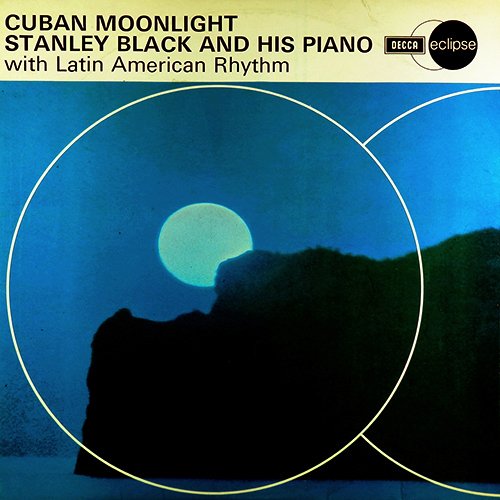
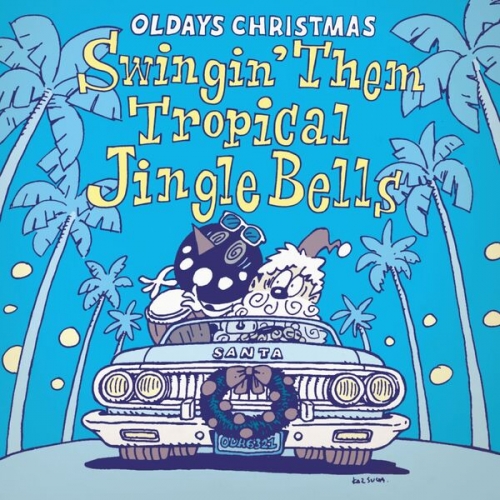
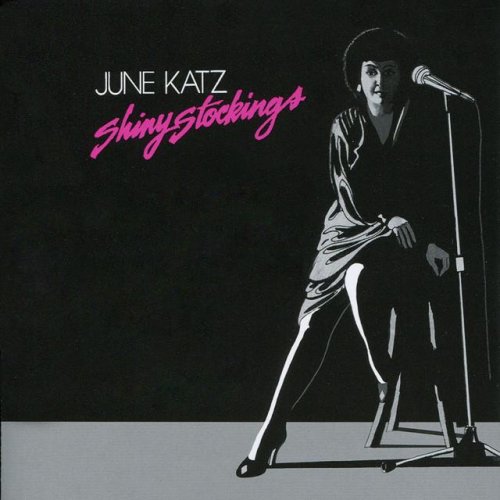
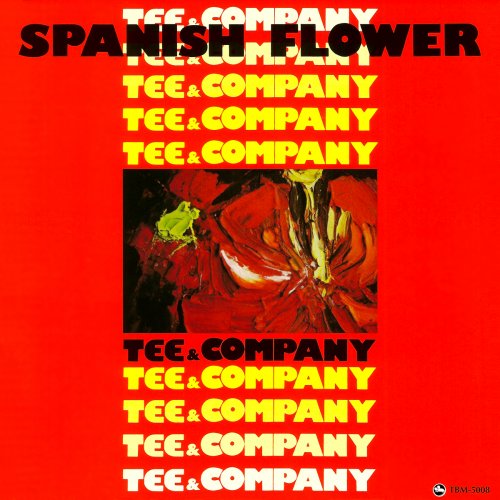
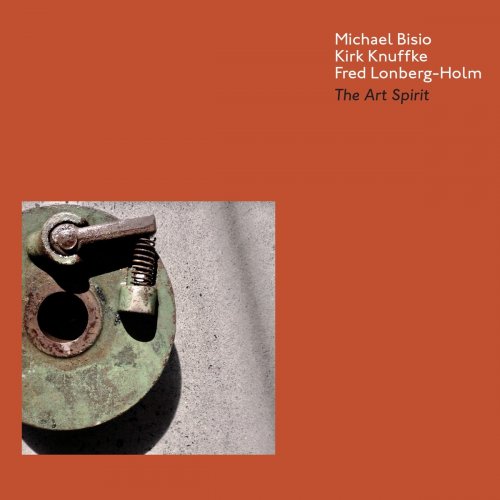
![Jeremy Pelt - Our Community Will Not Be Erased (2026) [Hi-Res] Jeremy Pelt - Our Community Will Not Be Erased (2026) [Hi-Res]](https://www.dibpic.com/uploads/posts/2026-02/1771945030_folder.jpg)
![Larry Coryell - Major Jazz Minor Blues (1998) [CDRip] Larry Coryell - Major Jazz Minor Blues (1998) [CDRip]](https://www.dibpic.com/uploads/posts/2026-02/1771860317_5.jpg)
![Ex Novo Ensemble - Claudio Ambrosini: Chamber Music (2020) [Hi-Res] Ex Novo Ensemble - Claudio Ambrosini: Chamber Music (2020) [Hi-Res]](https://img.israbox.com/img/2026-02/22/z541qb9ul4q390uxlw1d9iak3.jpg)
